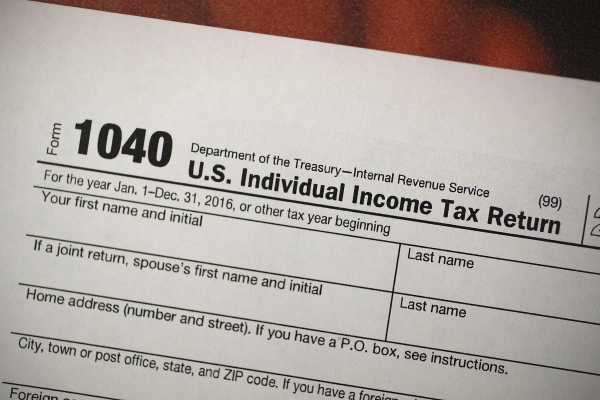
The federal government remains partially shut down as President Donald Trump refuses to sign a spending deal that doesn’t include $5 billion for his wall at the US-Mexico border. But as Americans start to think about filing their taxes, they may wonder: How will this affect tax returns and refunds?
The short version: If the federal government shutdown doesn’t last too much longer (that is, if it ends in the next couple of weeks, before mid-January), there shouldn’t be a noticeable effect on getting your tax refund or any other processing. That’s because the Internal Revenue Service (IRS), which handles federal taxes, wasn’t planning on tax season fully starting until later in January, anyway. And once the IRS begins accepting tax returns, you’ll still be able to mail them in or submit them online even if the government is still shut down.
But if the shutdown drags on longer, there could be delays and other serious problems at the IRS. For one, the IRS’s contingency plan only explained how the agency would handle the first five business days — through December 31 — of a shutdown. As a shutdown lasts longer, the agency will have to rework its plan, and head into more uncertain territory that could demand, for example, that agency employees show up to work without pay.
The long version: As part of the government shutdown, the IRS planned to keep 12.5 percent of its workforce, or fewer than 10,000 federal employees, working. The tens of thousands of other IRS workers are furloughed, so they’re no longer paid or expected to show up to work for the time being.
But as Politico reported, that could change as tax filing season begins — and some workers could get called back and be expected to work without pay (at least until they get back pay once the government reopens).
The remaining workers and those called back without pay will let the IRS continue some operations in the short term, particularly functions that are automatic (and require limited to no workers) and those deemed “necessary for the safety of human life or protection of government property.” Some examples: processing electronic returns, processing returns with payments, mailing tax forms, appeals, criminal law enforcement and investigations, and technical work to make sure computer systems remain up and running.
So taxpayers will be able to mail in tax returns or submit them online even if the shutdown stretches into February.
But depending on how long the shutdown lasts, there could be some problems.
First, tax refunds won’t be issued. Although tax filing season starts in January, the IRS typically takes a few weeks to start getting refunds out.
So if the shutdown ends soon, there shouldn’t be a big impact on 2018 tax refunds. If the shutdown lasts beyond the first few weeks of January, expect at least some delays on the refunds (since, after all, the government is running out of cash).
One group that could be affected: those still waiting on tax refunds from before 2018. As long as the government remains closed down, don’t expect to get that money.
Meanwhile, the IRS will also stop several other functions: audits, return examinations, non-automated collections, and 1040X processing, among other operations. (For a full list, read the IRS’s contingency plan.) Depending on how long the shutdown lasts, the IRS may opt to restart some of these functions no matter what — but the employees carrying out this work may not be paid for it until Trump and Congress agree to a spending deal.
One other area in which the IRS may have problems is the continuing implementation of the 2017 tax legislation passed by Republicans in Congress and signed by Trump. As the IRS’s contingency plan noted, the law’s implementation “requires creating or revising hundreds of tax products including worksheets and tax forms, form instructions and publications as well as changes to current IRS policies and procedures.” That work is likely to be stalled by a shutdown.
There’s a big caveat to all of this: The longer the shutdown goes on for, the worse the problems will get. The IRS is already going to have to update its contingency plan now that the shutdown has lasted longer than five business days. If the shutdown lasts much longer, the IRS will likely have to make more and more changes on the spot.
Sourse: vox.com






